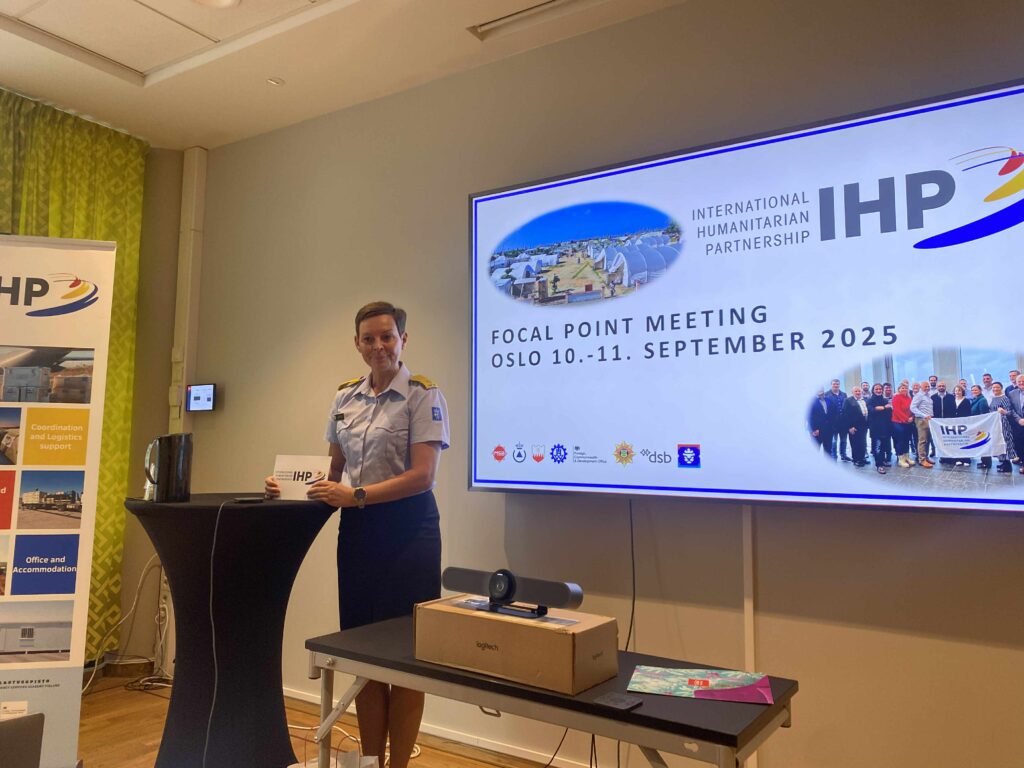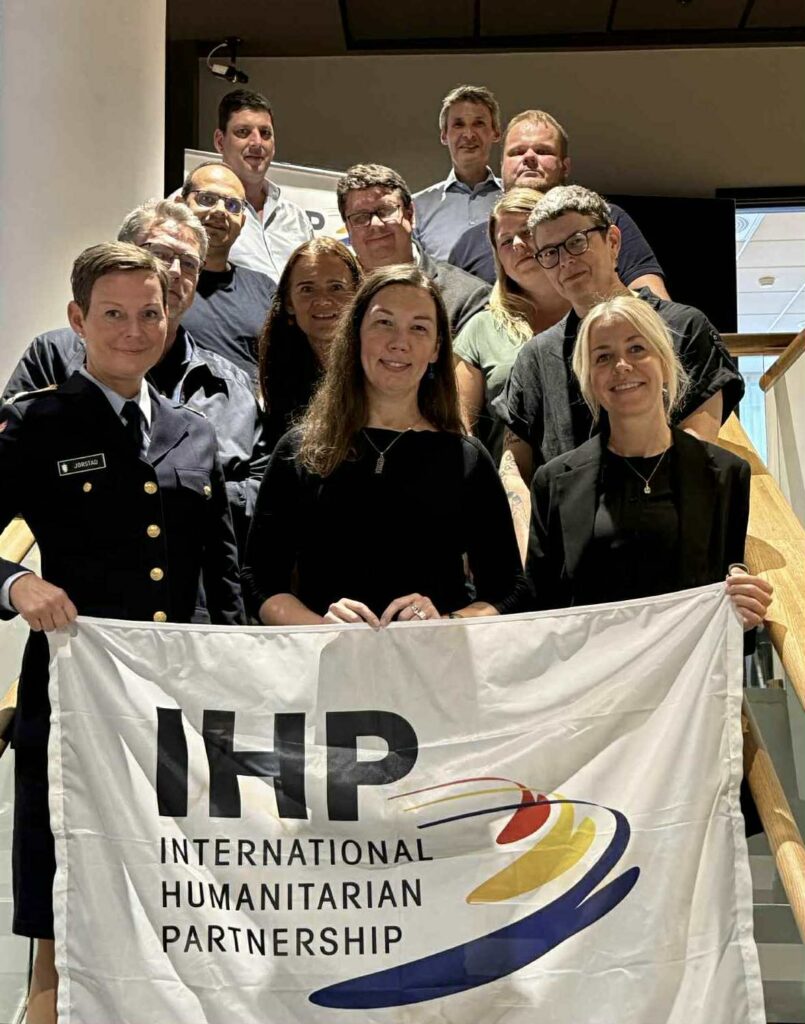IHP Focal Point Meeting in Oslo Sets Strategic Direction Under Norwegian Presidency

The International Humanitarian Partnership (IHP) held its first Focal Point meeting under the Norwegian presidency from 10–11 September 2025 in Oslo. Representatives from IHP member states and partner organizations, including OCHA, WHO, WFP, UNHCR, UNICEF, IOM, MapAction and DG ECHO attended in person and online.
Opening the meeting, IHP Chair Elin Heier Jorstad welcomed participants and underscored the importance of unity and adaptability as humanitarian operations face growing global challenges.
The discussions began with an overview of the UN80 Initiative, introduced by OCHA, highlighting the UN’s ongoing structural and operational reforms aimed at creating a more agile and sustainable humanitarian system amid tightening budgets and rising global needs.
The Norwegian IHP Presidency’s strategy (2025–2026) focuses on strengthening coordination, preparedness, and operational delivery across the partnership. Emphasis will be placed on clear service definitions, enhanced security integration, and realistic collaboration, ensuring that IHP remains effective even as national demands on members increase.
Members reviewed ongoing and upcoming missions, including ICT support to UNDAC and the Southern African Development Community’s (SADC) Emergency Response Training (ERT) and IOM exercises and potential deployments in DRC and Ethiopia. A joint SWOT exercise helped identify IHP’s strengths and challenges, fostering stronger links between Focal Points and working groups.
Updates from networks included the relaunch of the IHP Safety and Security Network, and new e-learning initiatives proposed by the Training Network. OCHA presented new templates and guidance to streamline deployment requests and financial management during missions.
The meeting concluded with plans for two virtual sessions before year’s end and an in-person gathering in early 2026.
The Oslo meeting reaffirmed IHP’s collective commitment to “helping the helpers” through stronger coordination, shared expertise, and sustainable operational support.
